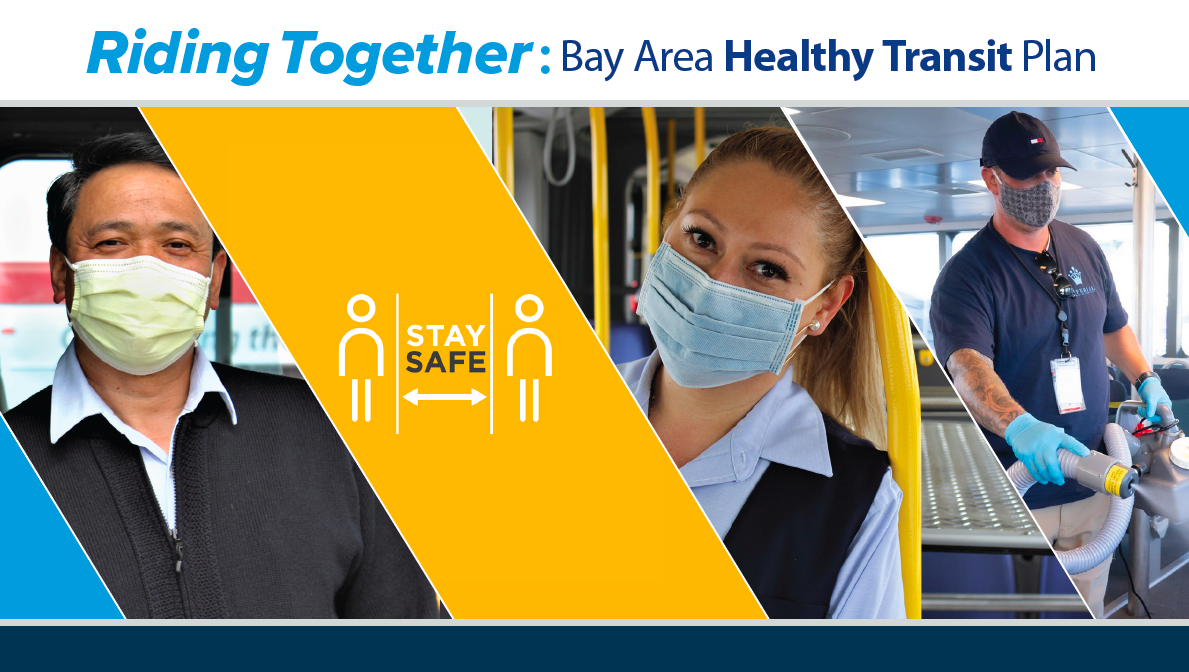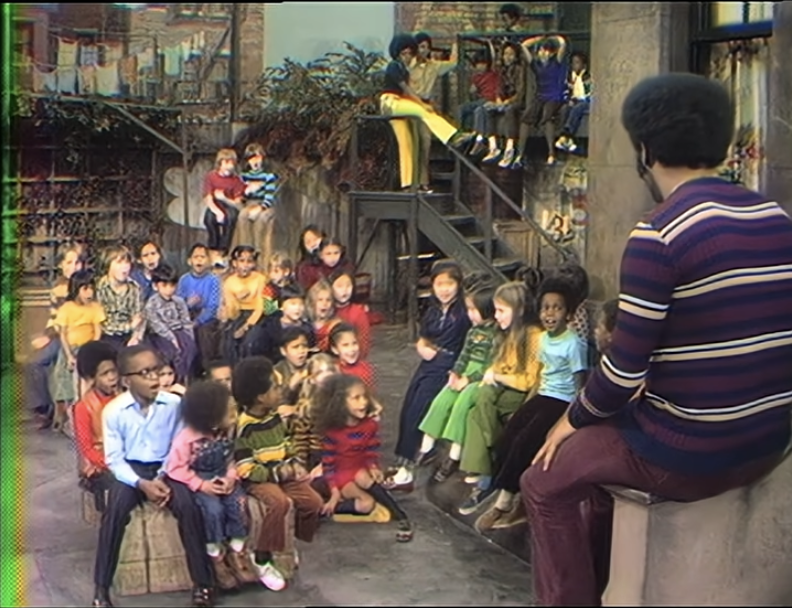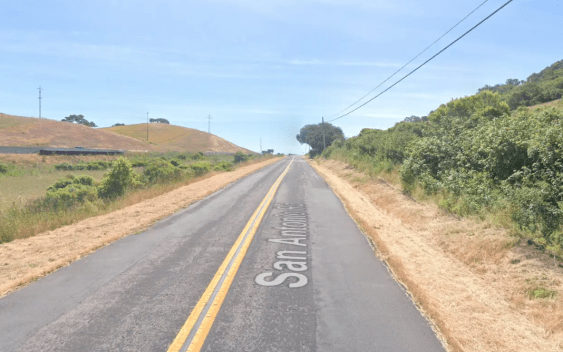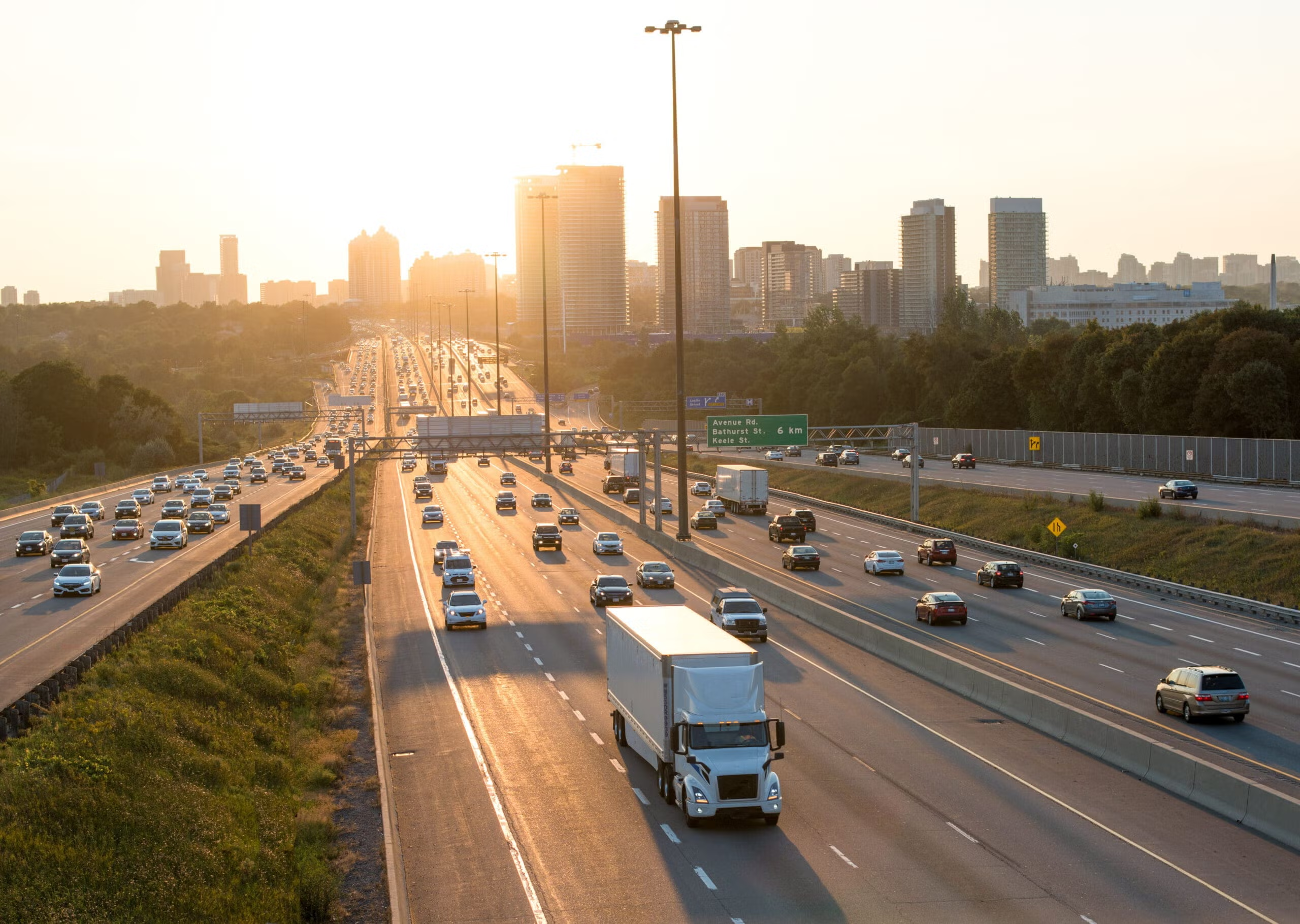Note: GJEL Accident Attorneys regularly sponsors coverage on Streetsblog San Francisco and Streetsblog California. Unless noted in the story, GJEL Accident Attorneys is not consulted for the content or editorial direction of the sponsored content.
The Metropolitan Transportation Commission today issued a report that claims to be "a cohesive health and safety plan" for area transit operators that will "provide guidance for [COVID] mitigations to be consistently applied across the [transit] network."
Except it's not. Ride Together: Bay Area Healthy Transit Plan [PDF], wasn't produced by the MTC, the Bay Area's regional planning organization, and it doesn't provide guidance so much as suggestions. According to Ellen Wu of Urban Habitat, the report merely "documents practices that have already been adopted, and outlines the individual responsibility of riders to ensure safety on public transit."
Streetsblog SF offers a quick overview, with a video, of the plan here.
"Ride Together" was put together by a subcommittee of the MTC's Blue Ribbon Transit Recovery Task Force, which had been formed at the urging of riders, transit workers, and advocates to take action on transit safety in the face of an unprecedented emergency. The subcommittee that wrote the plan was made up of the 27 Bay Area transit operators - and they went easy on themselves.
The people who pushed the MTC to take action are not pleased. Advocates had asked the MTC to create specific, clear guidelines on issues affecting rider and driver safety. But this apparently completed plan contains no consistent standards on any of the issues they raised concerns about, including requirements and standards for personal protective equipment for operators, clear distancing guidelines, or requiring sick leave for workers with COVID symptoms.
The MTC, for its part, is taking a step back. "We are not transit operators," its spokesman John Goodwin told Streetsblog. "There is very limited influence that we can have on transit operators," he said. But MTC does control transit funding, including the federal CARES Act money allocated to help transit operators survive the COVID ridership and funding implosion. The MTC had divided the Bay Area's share of the CARES Act into two pieces, allocating a portion of it to the operators according to formula and holding some of it in reserve.
Advocates had originally asked the MTC to use some of that reserve to provide protective equipment to both riders and workers. Instead, they got the task force.
The lack of any mention of providing masks, or funding to do so, is particular concerning in terms of safety. It forces drivers to enforce the mask requirement, putting them at a double risk both of catching the virus and potentially being harassed or attacked. This is not merely academic speculation--there have already been reports of drivers being attacked by riders who take umbrage at being told they must wear a mask.
In France, a driver was beaten to death when he told some passengers they had to wear masks.
"There is a difference between being safe - based on science and what we understand about masks and ventilation and distancing, for example - and feeling safe," Hayley Currier of TransForm, a member of the Blue Ribbon Task Force, told Streetsblog. "This plan needs to provide specific, consistent guidance that all the operators must follow, in order for all workers and riders to feel safe," she said.
"But they won't hold themselves to a high enough standard," she added.
“This report does not provide clear regional standards to ensure the health and safety of transit
workers and riders,” wrote Urban Habitat’s Wu, also a member of the task force, in a statement. “Transit workers and essential workers who rely on public transit, the majority of whom are low-income people of color, are paying a disproportionately heavy price during this pandemic.”
The separate transit agencies "have taken a hit-or-miss approach to worker and rider safety since the COVID-19 pandemic struck in March," wrote Richard Marcantonio of Public Advocates in a statement. "Five months later, the Bay Area’s glossy “plan” for healthy transit essentially tells transit riders: 'you’re on your own.' The plan’s failures especially impact people of color, who are a majority of transit workers and riders, and are the hardest hit by COVID-19 crisis."
"Instead of creating standards for every transit agency to comply with, they just took that off the table," Marcantonio told Streetsblog. "We ended up with basically no required standards. They're not going to provide masks to riders. They were going to decide minimum standards for protective equipment, but they just gave it back to the transit agencies," he added.
TransForm's Currier also produced a written statement for the press. “We appreciate transit operators responding to our demands for universal standards for worker and rider safety," she wrote. "But the document released today falls short of what is needed. The Bay Area Healthy Transit Plan fails to provide concrete standards or specific requirements that operators must follow to keep workers and riders safe."
While it claims to create consistent expectation for riders and workers, the plan actually asks each operator "to come up with their own assessment protocols, determinations of minimum PPE, and job hazard analyses," she wrote. "The document relies heavily on employee and rider responsibility, without requiring significant action or changes from transit operators. For example, it emphasizes the importance of masks and good hand hygiene, yet doesn’t require transit to provide masks, hand sanitizer, or hand-washing stations."
Currier said the Blue Ribbon Task Force had asked the subcommittee to provide it with a draft version of the plan, so that the public, especially transit workers and riders, could have a chance to comment on it before it was finalized. Instead, the task force was given a draft yesterday, and today the plan was released by the operators at an in-person, broadcast-media-only press conference.
It's not even clear whether this plan will be on the agenda of the MTC's regular meeting next week.
Transit advocates, including the Amalgamated Transit Union, which represents workers at most of the Bay Area agencies, had asked the MTC to step up and take responsibility to produce a clear safety guidance document.
Their requests were specific, and included recommendations on minimum personal protective equipment for workers, provision of recommended personal protective equipment to every worker, and provision of masks and hand sanitizer for passengers. For workers: sick leave when they are affected by COVID-19, compensation commensurate with being as essential workers during a public health crisis, being able to keep their jobs and maintaining wages and benefits, and onsite testing. Other requests were to continue service to avoid overcrowding, limit passenger loads, and install protective barriers for operators.
None of these show up in the plan.
But, write the operators in the introduction, "We look forward to a partnership with our customers and the shared responsibility for reducing transmission by properly wearing face coverings and meeting other expectations."






